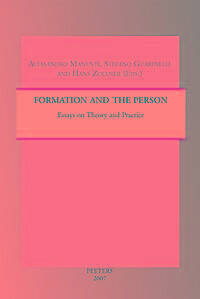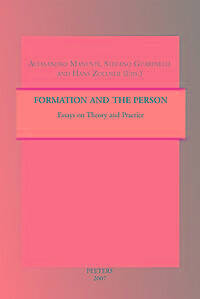
En raison d'une grêve chez bpost, votre commande pourrait être retardée. Vous avez besoin d’un livre rapidement ? Nos magasins vous accueillent à bras ouverts !
- Retrait gratuit dans votre magasin Club
- 7.000.000 titres dans notre catalogue
- Payer en toute sécurité
- Toujours un magasin près de chez vous
En raison de la grêve chez bpost, votre commande pourrait être retardée. Vous avez besoin d’un livre rapidement ? Nos magasins vous accueillent à bras ouverts !
- Retrait gratuit dans votre magasin Club
- 7.000.0000 titres dans notre catalogue
- Payer en toute sécurité
- Toujours un magasin près de chez vous
46,00 €
+ 92 points
Description
This book gathers the foundational concepts which characterise the approach to the person, as human and as Christian, which has been developed at the Institute of Psychology of the Pontifical Gregorian University during its more than 35 years of activity. The book directs these concepts towards further paths for investigation and puts them in dialogue with sister schools of depth psychology and with other areas of scholarship (in particular philosophy and theology) which are equally interested in exploring the human mystery. Hence the variety of authors - psychologists, philosophers and theologians - brought together by a common interest in understanding and forming the human person in better ways. The reflections contained in this book gain concrete expression in an educative-therapeutic practice, and they review the nodal points which are part of every journey of growth and of psychotherapy: personal identity, interaction with the external world and the attainment of personal truth, inner imagination, desires and affections, conflicts. Instruments are offered to enable the formator and the psychotherapist to make the best possible use of the great energies which are made available by their application: how to identify the real problem, where to concentrate one's attention, what to listen to, how to handle the relationship, on what element to act in order to promote improvement/cure, what kind of change to propose. While accompaniment and psychotherapy are different procedures, they nevertheless have many similarities and points of contact. The dynamic relations and the factors involved in growth which this book describes are valid for both modalities of intervention and will be of interest to anyone who wishes to help others in a more enlightened educative dialogue.
Spécifications
Parties prenantes
- Auteur(s) :
- Editeur:
Contenu
- Nombre de pages :
- 303
- Langue:
- Anglais
- Collection :
- Tome:
- n° 12
Caractéristiques
- EAN:
- 9789042918818
- Date de parution :
- 20-02-07
- Format:
- Livre broché
- Format numérique:
- Trade paperback (VS)
- Dimensions :
- 160 mm x 239 mm
- Poids :
- 498 g

Les avis
Nous publions uniquement les avis qui respectent les conditions requises. Consultez nos conditions pour les avis.






